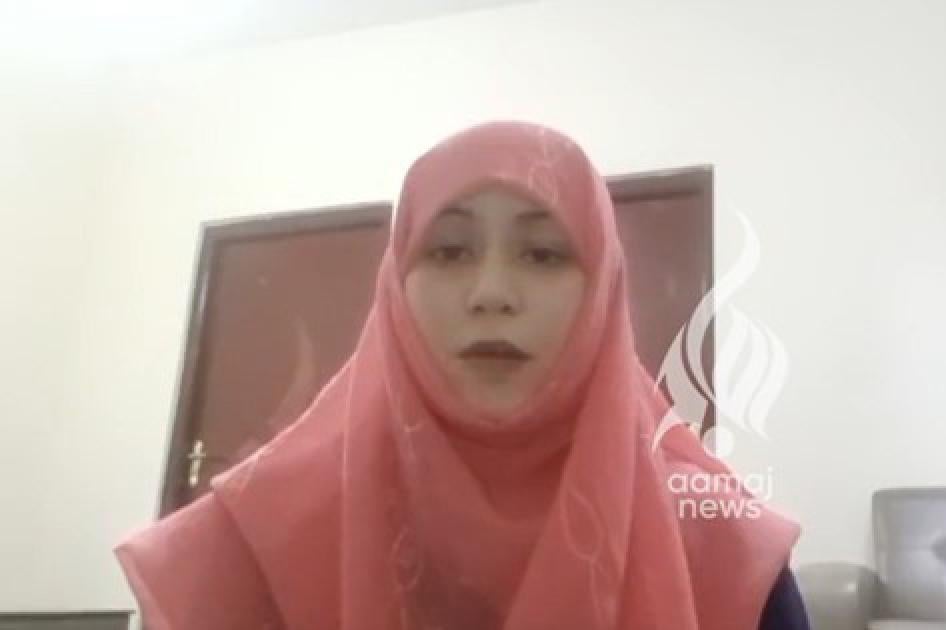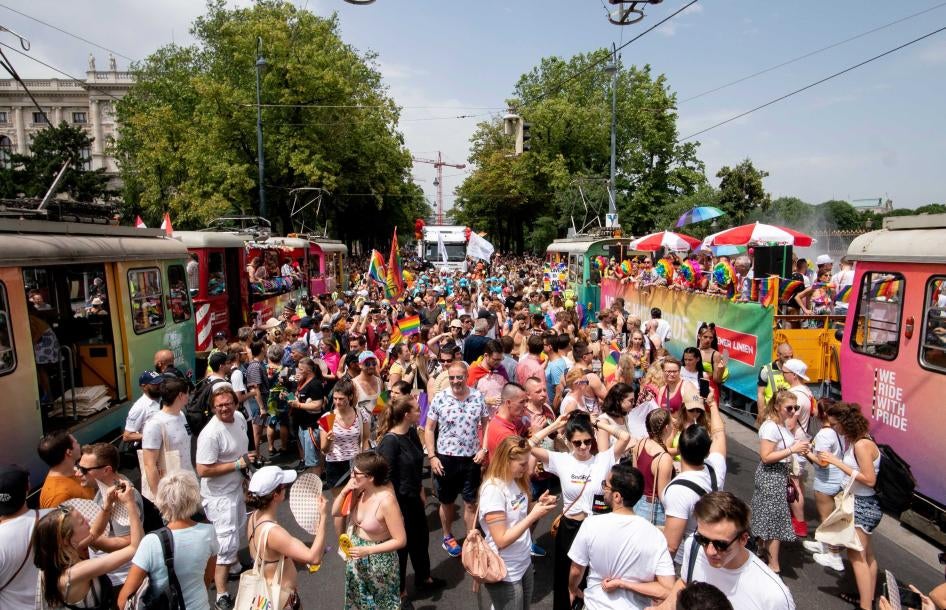Diplomacy from Ukraine to Ethiopia: Daily Brief
- Confronting Ethiopia's Abusive Siege;
- Horror and Hope in Afghanistan;
- Belgrade’s Bogus Ban;
- Take Note;
- Reader Suggestions;
- Most Viewed: Ukraine;
- Quote of the Day: Xinjiang.
Confronting Ethiopia's Abusive Siege
African diplomacy recently played a key role in lifting the blockade of Ukrainian grain – but some of the people in Africa most at risk of hunger may not benefit.
For almost two years, the Ethiopian government has put a chokehold on humanitarian assistance to the country’s beleaguered Tigray region, leading to a severe starvation crisis. This siege is in violation of Ethiopian domestic law, international human rights law, and international humanitarian law.
Of course, it’s not the only serious violation in the context of the war in Tigray. Since November 2020, Ethiopian forces and their allies have pillaged and targeted homes and civilian infrastructure — businesses, hospitals, banks, livestock, and harvests. (Tigrayan forces later replicated some of these same crimes in other regions.)
The destruction in Tigray has prevented people from getting healthcare, food, and other basic services. For months, federal and regional forces blocked off the roads, making it nearly impossible for humanitarian agencies to carry in medical supplies or food.
The Ethiopian government declared a humanitarian truce in late March, so some humanitarian convoys previously blocked from entering Tigray have finally been making it into the region. But it doesn’t come close to matching people’s needs there, and fresh fighting puts aid agencies’ efforts at further risk.
Which brings us back to those Ukrainian grain shipments…
Following concerted pressure by African governments on Russia and UN-led negotiations, the UN’s first chartered ship carrying Ukrainian grain for Africa set sail on August 16, destined for – you guessed it – Ethiopia.
But will any of that grain reach where it’s most needed inside the country?
Maybe, if we see that kind of international pressure once again. The UN Security Council, starting with its African members (the “A3,” currently Gabon, Ghana, and Kenya), and the African Union should publicly call on Ethiopia to completely lift its chokehold on humanitarian aid and its shutdown of basic services.
African states and UN engagement around Ukraine have demonstrated what diplomacy can deliver. More of the same, please.
Horror and Hope in Afghanistan
It’s maybe no surprise to hear that a Taliban official might inflict forced marriage and rape on a woman. For decades, the extremist, armed movement’s entire ideology has been not simply misogynist, but obsessed with the repression of women.
A new case, however, is particularly appalling and begs the question: how often are things like this happening in Afghanistan today?
In a video that surfaced on social media this week, Elaha Dilawarzai, an Afghan medical student, claimed that a man named Qari Saeed Khosty, then a Taliban Ministry of Interior Affairs spokesperson, forced her into marriage. “He was raping me every night,” she says, crying. “Every night he would beat and torture me.”
She also alleges that he filmed her, implying during sexual acts, and threatened to release the videos.
Khosty has denied the allegations, and Taliban officials have acted with predictable inhumanity. Rather than investigate the alleged violent crimes and blackmail, they have instead apparently arrested Dilawarzai on charges of defaming Khosty.
Amidst the horror, hope in Afghanistan comes from women’s activism. Elaha’s video has prompted a #JusticeForElaha campaign, again illustrating how women and girls in Afghanistan are using social media to tell the world about Taliban abuses.
Belgrade’s Bogus Ban
We admit what we’re doing is wrong, but we’re doing it anyway.
That’s essentially the message of Serbian President Aleksandar Vučić who, when recently announcing the government’s banning of the EuroPride event, confessed the move was a, “violation of minority rights.”
EuroPride is a regional celebration promoting equality for lesbian, gay, bisexual, and transgender (LGBT) people that Serbia was slated to host from September 12 to 18, with a march on September 17. Vučić justified the decision to ban the event because of threats from right-wing groups to disrupt it and rising border tensions with Kosovo.
As my colleague, Graeme Reid, director of the LGBT rights program at HRW says: “The Serbian government’s decision to cancel EuroPride is a shameful surrender to, and implicit sanctioning of, bigotry and threats of unlawful violence.”
Rather than yielding to intimidation or inventing tenuous excuses, the Serbian government should reverse this decision and work with EuroPride organizers to ensure the event is safe.
You’re not going to weaken bigotry by appeasing it.
__________________________________________________________________
Take Note
(curated today by Lisa Maier)
Tunisia: President Saied derides women’s social and economic rights (HRW)
The fight to end forced sterilization of disabled women and girls in Europe (Women’s Media Center)
Border lawlessness and Greece’s slide toward authoritarianism (Der Spiegel)
Water crisis in Mississippi: why an entire US city has no clean water (The Guardian)
Indonesian soldiers arrested for allegedly killing four Indigenous Papuans (HRW)
Gun jams in assassination attempt on Argentina’s Vice President Christina Kirchner (BBC)
Threats Indigenous people face in Brazil under President Jair Bolsonaro (Al Jazeera)
__________________________________________________________________
Reader Suggestions
In addition to your Daily Brief subject suggestions that I mentioned in yesterday’s Daily Brief, many pulled in via Twitter, I’ve received these ideas, too: forced sterilization and other abuses related to reproductive health and rights; government abuses in Bahrain; the UK government’s failures to condemn abuses abroad – and their threat to rights at home, as well; and others.
This is all very helpful, so please keep the ideas coming: email me or contact me on Twitter with your suggestions.
__________________________________________________________________
Most Viewed: Ukraine
The most popular page on our website right now is yesterday’s report: “‘We Had No Choice’: ‘Filtration’ and the Crime of Forcibly Transferring Ukrainian Civilians to Russia.”
These forced transfers by Russian and Russian-affiliated forces are a serious violation of the laws of war that constitute war crimes and potential crimes against humanity.
__________________________________________________________________
Quote of the Day: Xinjiang
“This report should have come out a year ago.”
Sophie Richardson, HRW’s China Director, speaking to PBS NewsHour in the US about the long-awaited UN report published late Wednesday, which highlighted the Chinese government’s crimes against humanity directed at Uyghurs and other Turkic communities in the Xinjiang region.


